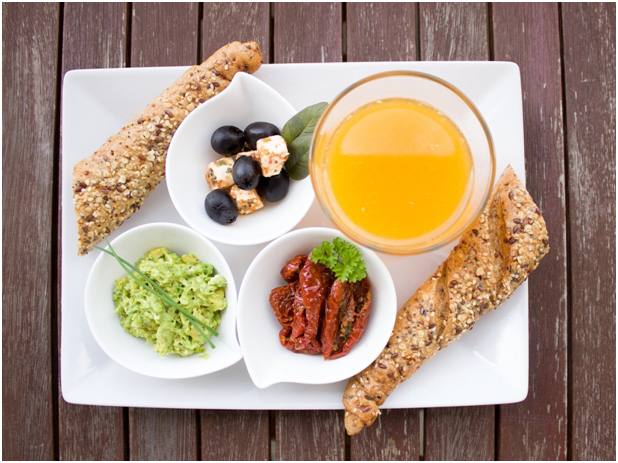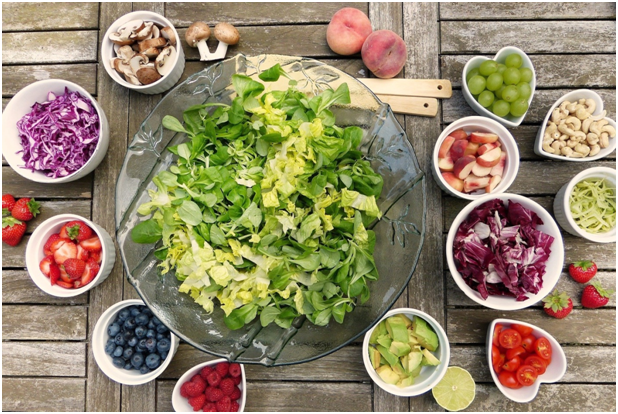To be a vegetarian, or not to be, that is the question. Many moons ago, the discussion about vegetarianism has only revolved around its nutritional deficiencies. Nowadays, more and more research looks into its terrific health benefits. People are interested in becoming a vegetarian, and for good reasons.
If becoming one may have once or many times crossed your mind, then what we’ve brewed below may help answer your inquiries. To be a vegetarian is a decision that could alter the course of your life-long health. In what ways? Well, we’ve set down a few fundamental insights on what it means to have a plant-based diet, what the risks are, and what benefits it brings. Let’s learn more about each below.
What makes a vegetarian a vegetarian?
So, let’s first set things clear with what a vegetarian is. Basically, a person who is vegetarian steers clear from poultry, seafood, and meat. These are no-no food sources for vegetarians. But wait, are dairy products excluded? Well, that leads us to our next discussion. There are actually various dietary patterns for vegetarians. Let’s check them out below.
Types of Vegetarians

In answer to the previous question, some vegetarians consume dairy products but don’t eat fish, meat, eggs, or poultry. They are known as Lacto vegetarians. Meanwhile, there are also people who don’t eat dairy products, meat, fish, or poultry. However, they consume eggs. They are called Ovo vegetarians.
Now if a person eats both eggs and dairy products yet eats no fish, meat, or poultry, then he or she is a Lacto-ovo vegetarian. Other types of vegetarians also include partial vegetarians. If you don’t eat meat yet eat fish, then you fall under the type called pesto-vegetarian or pescatarian. Another one is called pollo-vegetarian, which refers to a person who eats poultry yet avoids meat.
Finally, you may have heard of vegans before. These people are known as total vegetarians. To become one means to avoid all products derived from animals. With that in mind, you can’t eat fish, poultry, eggs, gelatin, meat, or dairy products. Sounds good, so far?
Reasons why people become vegetarians
So people may argue that there’s a lot at stake as one becomes a vegetarian. How about other nutritional sources the human body needs? Most importantly, how about the pleasure of my taste buds, right? Apparently, all these evaporate for a person with a reason.
One reason could be based on health or religious beliefs. The rise of antibiotic or hormone use in livestock is a downside for people mindful of their diets. While some just can’t have the luxury of eating meat for financial reasons. Other than that, a person may just want to choose a more environmental-friendly yet sufficiently nutritious way of eating. This may be for deeper concerns for environmental resources or animal welfare.
Now more than ever, people are heading toward a plant-based diet. As more proof surface on how beneficial vegetarianism is, more people are considering the possibility of going for a meat-free way of eating. The access to fresh produce in the market and the multiplication of plant-based eateries have helped make this possible.
So, should I go become a full-blown vegetarian?

Now that is a question only answerable by you. Must you change your diet altogether? Or must you slow it down? That would depend on how well your body and attitude adapts to what you consume.As the timeless words of the brilliant philosopher Friedrich Nietzsche go, ’He who has a why to live for can bear almost any how.” Well, if you’ve found your ‘why’ on becoming a vegetarian, the question of ‘how’ to be so rests on you. Either you go all the way or you take things slowly.
Some people who follow the Mediterranean eating pattern actually consume plant foods and a little meat. Changing your diet overnight is an understandably hard thing. To make your transition easier, you may have olive oil from nuts as a substitute for saturated fats. Or you may get protein from plant-based sources like tofu. It may be a matter of time before you get fully used to this diet. Nevertheless, each replacement will help take you closer to your intended direction.
What’s in it for me?

If becoming a vegetarian is too hard a shift for you, you might wonder—well, what’s the catch? What do I get by becoming a vegetarian? Quite a lot, actually. There lay ahead numerous health benefits for people following a vegetarian diet. It is believed that vegetarians are likely to lessen their risks of getting health diseases.
These people are inclined to have lower body mass index (BMI) or lower blood pressure, for instance, since they consume less fat or cholesterol. The American Dietetic Association has spoken on how vegetarian or vegan diets potentially provide a good impact in the prevention of certain health illnesses, as well as their corresponding treatment.
Vegetarianism and the prevention of chronic diseases
The chance of lessening the risk of getting diabetes has been looked into by studies like Seventh-day Adventists. As a result, it was found that vegetarians are less likely to have diabetes than nonvegetarians. Moreover, research has also linked the connection between vegetarianism and lower risk of heart diseases.Lastly, vegetarians have reportedly had a much lower chance of developing cancers compared to nonvegetarians. For example, ceasing to eat red meat helps reduce the risk of getting colon cancer.
Some health risks surrounding vegetarianism
Despite the growing health benefits of a plant-based diet, it still poses certain health concerns. According to the EPIC-Oxford study, vegans had a high rate of fractures as a result of consuming less than the recommended daily intake of calcium. People with a vegetarian diet may also run the risk of having vitamin K and vitamin D deficiency. Since these are essential for a person’s bone health, many people are concerned about getting osteoporosis.
Other plant foods as supplemental nutrients

Aside from that, the issue of not getting enough nutrients also emerges. These include iron, protein, Omega-3 fatty acids, protein, zinc, and Vitamin B12. Thankfully, there are vegetables and fruits that could supply your needs. Whole grains, beans, seeds, nuts, lentils, and peas are rich sources of protein and other nutrients. Vegetables such as broccoli and kale can also act as a supplement for your daily calcium needs.
But don’t get it wrong…

Just because you have a vegetarian diet doesn’t always mean you’re barrelling towards a healthy lifestyle. If your diet is also jam-packed with pools of added sugar such as candies and bottles of soda, then you might have to stop and think twice. To appropriately course your diet while following nutritional guidelines is the most recommended step. It’s still better to narrow your selection to vegetables, fruits, and whole grains.
Conclusion
It might be too early to put the discussion of vegetarianism to rest. More data confirming or countering the benefits of this diet will soon present itself. With this information at hand, it may be easier for you to decide on the question of becoming a vegetarian or not. Either way, always choose a diet that will create a positive impact on your long-term health.



